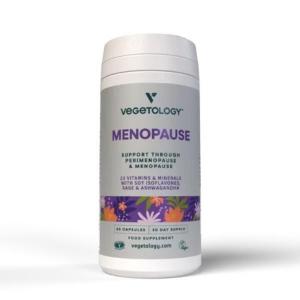
Discover how Coca-Cola can affect your body when vomiting

Coca-Cola for Nausea - Does it Really Help the Stomach, or is it Just a Myth?
Having an upset stomach, feeling nauseous, or actually vomiting are conditions that almost everyone knows. Whether it's a virus, food poisoning, or just nerves, nothing is pleasant at that moment. Yet, in many households, a peculiar piece of advice is passed down from generation to generation: "Have a few sips of Coca-Cola." But does Coca-Cola for vomiting actually have any positive effects on the human body? Or is it more of a tradition that lacks real support?
Where Did the Myth of Coca-Cola as a Remedy Come From?
Coca-Cola was created in 1886 as a pharmacy drink. It originally contained extracts from coca leaves and kola nuts and was intended as a tonic to strengthen the body. Over time, it became one of the most popular non-alcoholic beverages worldwide, although its medicinal effects have dramatically narrowed. Nevertheless, the reputation of Coca-Cola as a helper for stomach issues persists.
Especially in some cultures - for example, in Asia, South America, or even in Europe - it is common to recommend drinking a small amount of this sweet soda in case of stomach upset. It is believed that it helps against nausea and even alleviates vomiting.
But what does current science and modern nutrition say about it?
What Does Coca-Cola Do for Vomiting?
The reason Coca-Cola is used for nausea can be found in three main aspects: sugar, caffeine, and carbon dioxide. Each plays a certain role—and sometimes even a contradictory one.
-
Sugar: The glucose in Coca-Cola can theoretically provide quick energy, which the body lacks after being exhausted by vomiting. The sweet taste can also suppress feelings of nausea, especially if the stomach is empty. However, the high sugar content can irritate the stomach lining and worsen an already sensitive state.
-
Caffeine: Although the amount of caffeine in classic Coca-Cola is lower than in coffee, it is still present. It can stimulate the central nervous system and temporarily improve feelings of fatigue. On the other hand, caffeine has dehydrating effects, which is counterproductive when the body is losing fluids through vomiting.
-
Carbon Dioxide (bubbles): The fizziness may help some people relieve stomach tension and provide short-term relief. For others, it can cause bloating and even more discomfort.
Moreover, it's important to consider the acidity of the drink—Coca-Cola has a pH of about 2.5, making it quite acidic. In cases of an irritated stomach or stomach ulcers, phosphoric acid can worsen the condition. Experts warn that regular consumption of highly acidic drinks can negatively affect dental enamel and the digestive tract.
Does Coca-Cola Help with Vomiting in Children?
You might have received a spoonful of cola during the flu or a stomach virus as a child—just enough to "help a little." In some cases, it is recommended to boil Coca-Cola and serve it without bubbles. The goal is to remove carbon dioxide from the drink and reduce its acidity and irritability.
For instance, in Germany in the 1990s, this practice was so common that the German Pediatric Society explicitly advised against it. Instead, it recommends a rehydration solution containing electrolytes, ideally purchased at a pharmacy, which replenishes fluids and minerals lost during vomiting and diarrhea.
According to pediatrician MUDr. Eva Zajíčková: "Coca-Cola won't harm a child if they drink a few spoonfuls, but it certainly shouldn't replace the fluids and minerals the body needs during a virus or food poisoning."
Try our natural products
When Might Coca-Cola Be Useful?
Interestingly, in certain situations, using cola as a "rescue drink" makes sense. For example, when traveling abroad, where there's a risk of intestinal infections, some travelers prefer to drink bottled beverages like Coca-Cola—mainly for the assurance of water safety. In hot climates, a cold sweet drink can also temporarily invigorate, provide energy, and bring psychological relief.
An example is the experience of traveler Lenka, who suffered from an intestinal infection during a trip to India. In the hospital, she was advised to drink sweetened tea and salted rice, but she admits: "When I couldn't even move, a small sip of cola somehow brought me back to life. It certainly wasn't a cure, but it helped me psychologically."
This shows that the effect of Coca-Cola can be partly psychosomatic—meaning that the mere feeling that "something helps" has a positive impact on the psyche and indirectly on the body.
What to Drink Instead of Cola When Vomiting?
Instead of Coca-Cola, it's much safer to choose drinks that truly replenish what the body loses. In cases of vomiting and diarrhea, it's not just about water but also about sodium, potassium, chlorides, and glucose. The ideal options are so-called rehydration solutions, which can be purchased at a pharmacy or prepared at home.
Want to easily prepare a rehydration drink at home? Just mix a liter of boiled and cooled water with six teaspoons of sugar and half a teaspoon of salt—and if you want to improve the taste, feel free to add a little lemon juice. A simple, quick, and effective solution when you need to replenish fluids.
This simple solution helps maintain fluid and mineral balance in the body and is recommended by the World Health Organization (WHO).
Other options include herbal teas, such as ginger, mint, or chamomile, which have soothing effects on the digestive tract. Ginger is especially valued for its anti-inflammatory properties and ability to suppress nausea.
Coca-Cola Without Sugar: Is it a Better Choice?
Some people believe that Coca-Cola Zero or Light is a healthier option. However, this is not the case when vomiting. Sugar substitutes like aspartame or acesulfame K offer no benefit for replenishing energy and may further irritate the stomach. Moreover, they do not contribute to body hydration because the drink still lacks key minerals.
If someone wants to try Coca-Cola for nausea, it should be the classic version, ideally stale and served in small sips.
Ultimately, it's always important to observe symptoms. If vomiting lasts more than 24 hours, is accompanied by high fever, blood in the vomit, or signs of dehydration (dry lips, dark urine, weakness), it's necessary to seek medical help.
In today's world, where we have a wide range of natural and medically verified remedies for managing nausea and vomiting, Coca-Cola seems more like a nostalgic relic of the past than an effective remedy. However, if your stomach is upset and a small sip of cold cola brings you relief, that's fine. Just remember that it's more of an exception than a recommended standard.
And perhaps this is what's so fascinating about the human body—what helps one person may harm another.




